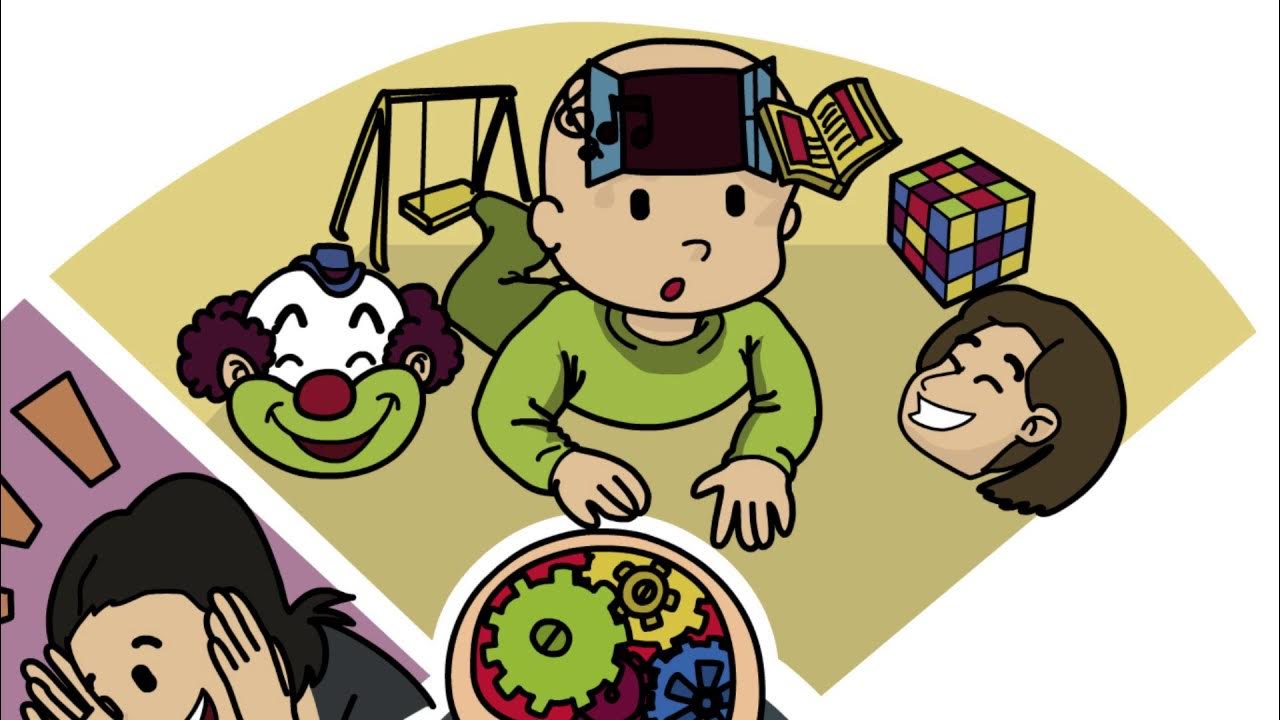A importância do brincar - 7 Experiências Fundamentais
Summary
TLDRThis video highlights the crucial role of play in a child's development. It emphasizes that through physical activities and group play, children gain confidence, learn cooperation, and understand social rules. Imaginative play helps children face challenges, express emotions, and develop empathy. The video also underscores the importance of providing children with diverse play experiences, both at home and outdoors, to stimulate creativity, language skills, and problem-solving abilities. Ultimately, it encourages adults to actively engage with children in play, supporting their growth and learning in various environments.
Takeaways
- 😀 Physical activity is crucial for children to learn about their bodies, limits, and gain confidence in interacting with the world.
- 😀 Playing in groups teaches children to cooperate, share, and respect each other, helping them understand social rules.
- 😀 Imaginative play helps children prepare for challenges, overcome fears, and express their thoughts and feelings more effectively.
- 😀 Through pretend play, children learn to empathize, take care of others, and develop qualities that make them more compassionate adults.
- 😀 Children improve their language skills when they narrate their actions while playing with objects or engaging in role-play.
- 😀 It's important for children to have the freedom to explore different types of play that stimulate creativity and learning.
- 😀 Adults can support children's development by participating in imaginative play and providing toys that encourage creativity.
- 😀 Play should be an everyday part of a child's routine, whether at home, parks, or even while waiting in line.
- 😀 Children don't only learn at school; every experience is an opportunity for them to grow, understand the world, and develop essential skills.
- 😀 Incorporating play into children's daily activities helps them grow and learn in a fun and engaging way.
Q & A
What is the main focus of the script?
-The script emphasizes the importance of play in a child's development, highlighting how different types of play contribute to physical, social, emotional, and cognitive growth.
How does physical activity in play benefit children?
-Physical activities like running, jumping, and playing help children learn about their bodies, build confidence, and understand their physical limits. This also prepares them to interact with the world around them.
What role does group play have in a child's development?
-Group play teaches children how to cooperate, share, respect others, and follow rules of behavior. These social skills are important for effective interaction in various settings.
Why is imaginative play, or 'make-believe', important?
-Imaginative play helps children develop creativity, face challenges, overcome fears, and express their feelings. It also teaches empathy and the ability to care for others by putting themselves in someone else's shoes.
How does pretend play aid in language development?
-When children narrate their actions or interact with objects during pretend play, they enhance their understanding and use of language, expanding their vocabulary and communication skills.
Why is it essential for children to have a variety of play experiences?
-A variety of play experiences provides children with different types of stimuli, helping them to explore, create, care for others, and acquire skills that will be valuable throughout their lives.
How can adults encourage play in children's lives?
-Adults can support play by engaging in imaginative play with children, offering toys that stimulate creativity, and ensuring that play is part of daily routines, whether at home, in parks, or while waiting in line.
What role do everyday experiences play in a child's development?
-Everyday experiences, such as waiting in traffic or spending time in a park, offer opportunities for children to learn and grow. Play is not limited to formal education and can happen in any setting.
How do play and learning connect in early childhood?
-Play is an essential way for children to learn about the world. It provides a natural environment for them to experiment, problem-solve, and develop cognitive and social skills.
What impact does play have on a child's emotional development?
-Play helps children express their emotions, understand their feelings, and cope with challenges. It fosters emotional resilience and allows children to gain confidence in handling different situations.
Outlines

このセクションは有料ユーザー限定です。 アクセスするには、アップグレードをお願いします。
今すぐアップグレードMindmap

このセクションは有料ユーザー限定です。 アクセスするには、アップグレードをお願いします。
今すぐアップグレードKeywords

このセクションは有料ユーザー限定です。 アクセスするには、アップグレードをお願いします。
今すぐアップグレードHighlights

このセクションは有料ユーザー限定です。 アクセスするには、アップグレードをお願いします。
今すぐアップグレードTranscripts

このセクションは有料ユーザー限定です。 アクセスするには、アップグレードをお願いします。
今すぐアップグレード5.0 / 5 (0 votes)






